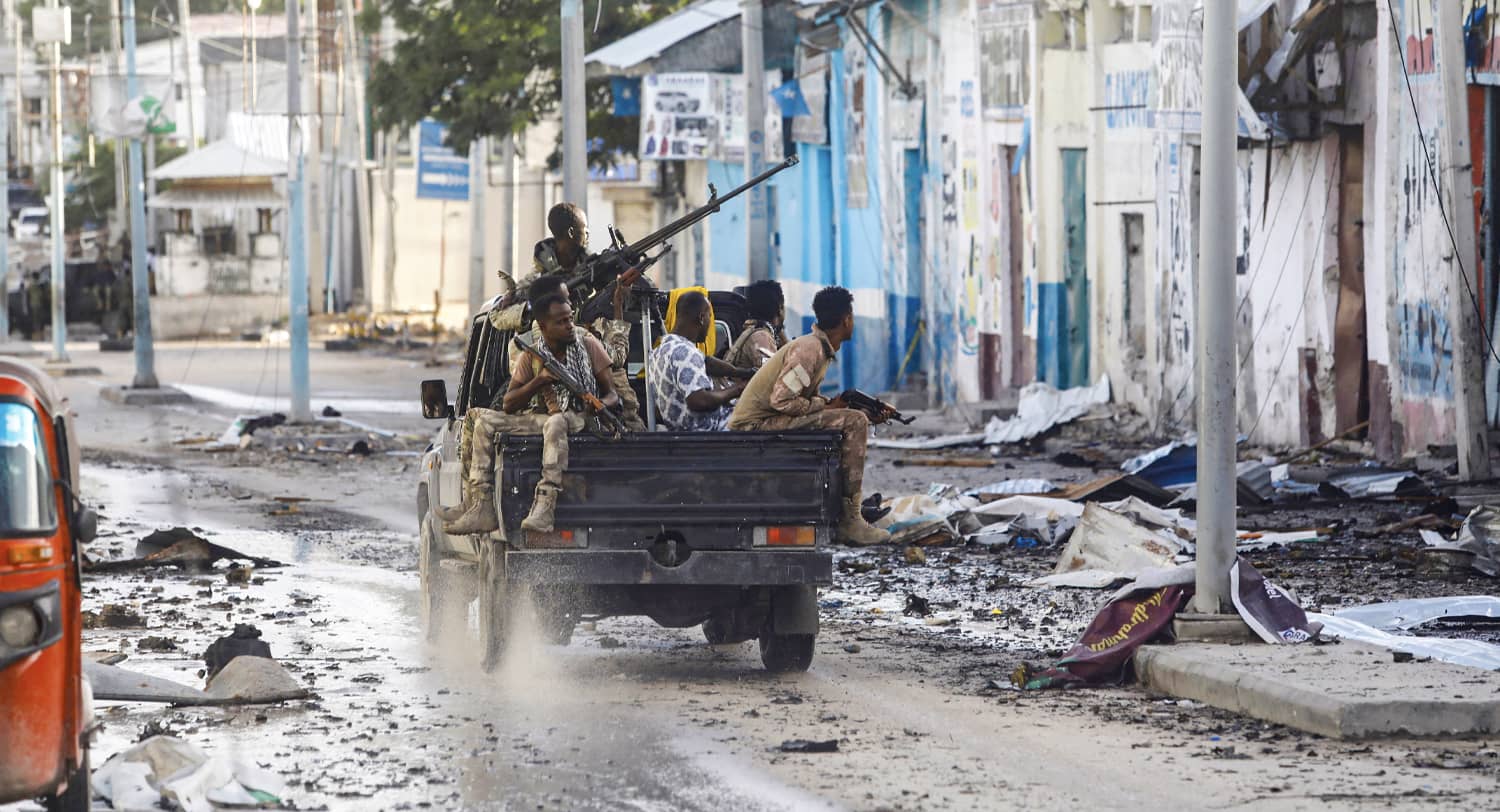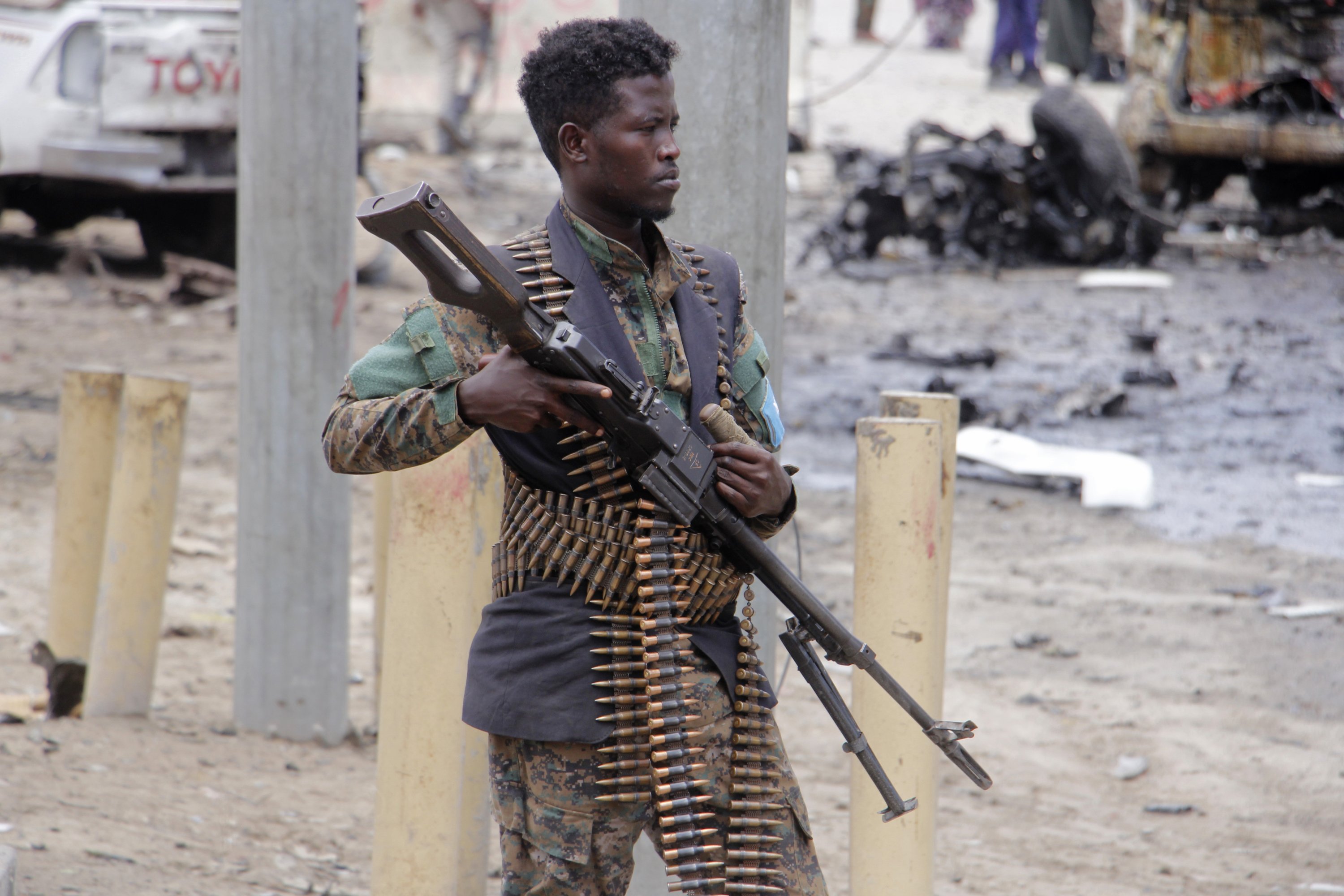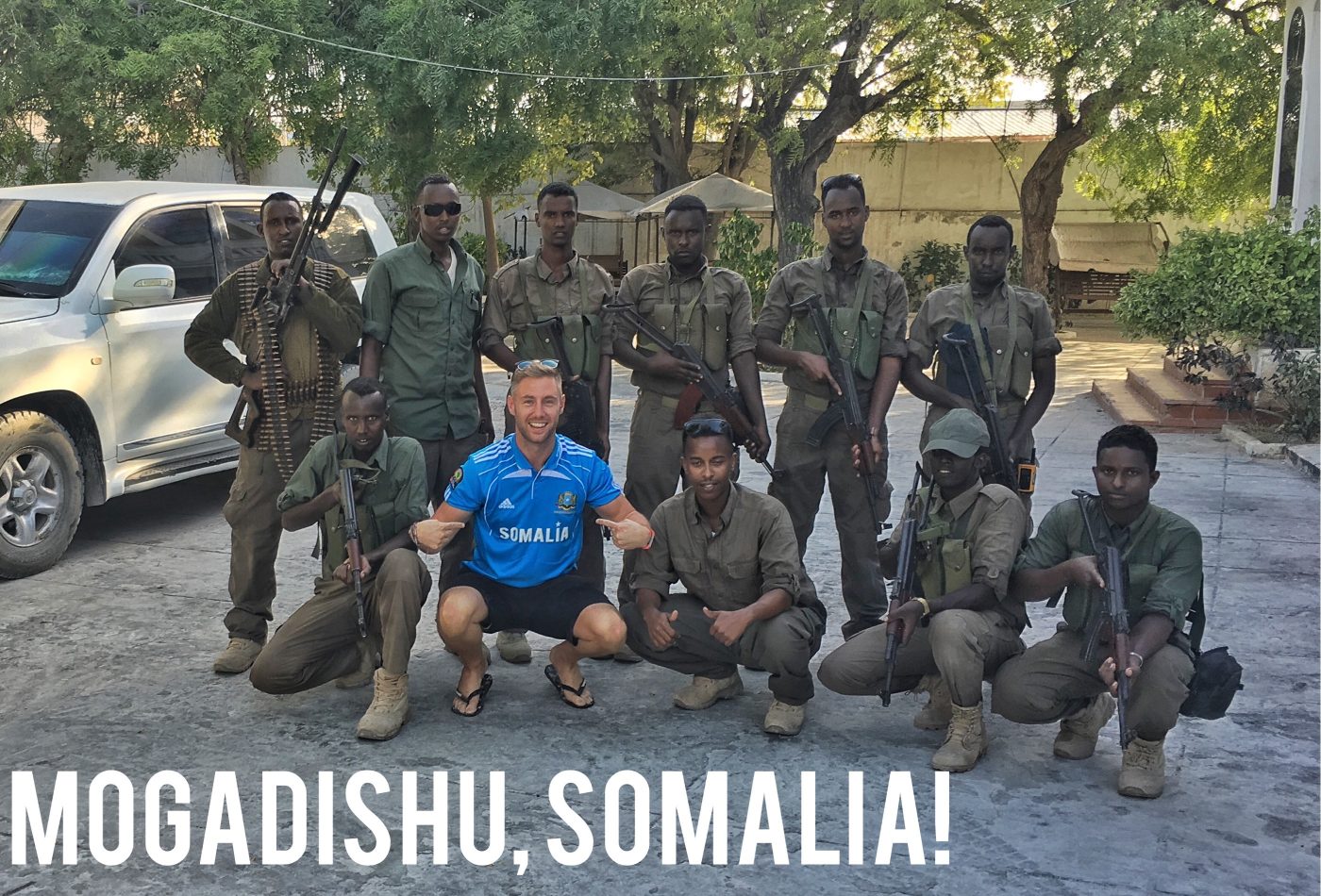Is Mogadishu Safe? Exploring The Reality Of Somalia's Capital Today
Many people wonder about Mogadishu, and a very common question that comes up is whether it's a safe place to be. It's a natural thing to ask, especially when you hear different stories about places far away. We often form ideas from what we see or read, and so, getting real information about a city like Mogadishu becomes pretty important for anyone curious.
You know, Mogadishu has a truly long and interesting past. It sits right there on the Indian Ocean, just a little north of the equator. This city, locally called Xamar or Hamar, was one of the earliest Arab settlements along the East African coast. It even served as the capital for Italian Somaliland, with the Italians taking control of the area around 1919 after some minor pushback. For a long time, before a difficult period, Mogadishu was actually known as the "White Pearl of the Indian Ocean," a really pretty description for such a significant place.
Today, Mogadishu remains the official capital of Somalia and a major commercial hub on the coast of East Africa. It's a huge city, holding over 2.6 million people as of 2023, which is, like, a lot of folks living and working there. While it faces ongoing challenges, which we will touch on, it's also a place where daily life happens for millions. Understanding its present involves looking at both its rich history and its current situation, so we can, you know, get a fuller picture.
Table of Contents
- The Question: Is Mogadishu Safe?
- Mogadishu's Storied Past: A Glimpse
- Mogadishu Today: A City of Millions
- Understanding Safety in Mogadishu
- Things to Consider Before Visiting
- A Look at Mogadishu's Attractions
- The Road Ahead for Mogadishu
- Frequently Asked Questions About Mogadishu
The Question: Is Mogadishu Safe?
So, the big question, "is Mogadishu safe," doesn't have a simple yes or no answer. It's really more complex than that, you know? The city has, for some time, been described as one of the more unstable places in the world. This is a reality that many people acknowledge, and it shapes how folks view the city.
However, it's also a place where a very large number of people live their lives. Over 2.6 million individuals, as of 2023, call Mogadishu home. They go to work, they run businesses, and they raise families. This tells you that life, in some form, definitely continues there.
The idea of "safe" can mean different things to different people, too. For someone living there, it might involve a routine they understand. For an outsider, it could mean something else entirely. We need to look at the different parts of what makes a place feel secure, or not, for various groups.
It's important to approach this question with a balanced view. We should acknowledge the challenges while also recognizing the daily existence of its many residents. That's pretty much the goal here, to give you a clearer picture.
Mogadishu's Storied Past: A Glimpse
To truly get a sense of Mogadishu today, it helps to glance back at its history. This city, locally known as Xamar or Hamar, has very ancient roots. Its beginnings go back as far as the 10th century, which is, like, a really long time ago.
It was one of the first Arab settlements on the East African coast. This means it played a significant part in early trade and cultural exchange in the region. You can imagine the ships coming and going, bringing goods and new ideas.
Later on, the city saw colonial influence. The Italians, for example, took control of the area around Mogadishu in 1919. They made Mogadiscio, which is the Italian name for Mogadishu, the capital of Italian Somaliland. This period, you know, added another layer to its history.
Before the civil war, a time many people remember, Mogadishu held a beautiful nickname: the "White Pearl of the Indian Ocean." This suggests a city of considerable beauty and perhaps calm. It paints a picture of a different time, which is pretty interesting to think about.
This long history, full of different influences and changes, has shaped the city we see now. It shows that Mogadishu has always been a place of importance, a real center of activity on the coast.
Mogadishu Today: A City of Millions
Right now, Mogadishu stands as the largest city in Somalia. It is the official capital and a major commercial city. Its location on the Indian Ocean, just north of the equator, still makes it a key port for the region, which is, like, super important for trade and goods.
The sheer number of people living there is quite something. As of 2023, the city is home to over 2.6 million individuals. That's a huge population for any city, honestly. This means there's a lot of daily life, activity, and commerce happening within its boundaries.
Even with its challenges, the city functions as a hub for many things. It’s where a lot of business gets done, where people find work, and where families build their lives. So, while you might hear about its difficulties, it's also a place with a very active population.
The city's status as a major port still holds true. Goods come in and out, connecting Somalia to the wider world. This commercial aspect is a big part of its current identity. It really shows how vital it is to the country's economy, too.
Understanding Safety in Mogadishu
When we talk about whether Mogadishu is safe, it's really about understanding the different layers of security. The provided information does say it "is, and will remain for some time, one of the most unstable cities in the world." This is a frank assessment, and it means caution is a sensible approach.
For most travelers, especially those without specific connections or reasons to be there, the risks are generally higher than in many other major cities. This is just a plain fact to consider. It's not like visiting a typical tourist spot, you know?
The instability often comes from various factors, which can include political issues or localized conflicts. These things can affect daily life and security, making certain areas or times more risky. So, being aware of current events is pretty much a must.
However, it's also true that many local residents live and work there every day. They have their routines and ways of staying safe within their communities. This highlights that "safety" can be very different depending on who you are and what you are doing there.
Some people, like journalists or aid workers, might visit Mogadishu with specific security arrangements. This often involves local support, protected transport, and a clear understanding of no-go areas. This is, like, a completely different way of experiencing the city.
For the average person just thinking about a visit, it's important to get current, very specific advice. General information might not cover the quickly changing situations on the ground. You really need up-to-the-minute details.
Thinking about safety in Mogadishu means thinking about personal risk tolerance. It also means relying on trusted sources for advice, rather than just general assumptions. That's the honest truth about it.
Things to Consider Before Visiting
If you're thinking about a trip to Mogadishu, there are, you know, a few very important things to keep in mind. The first one is to check current travel advisories from your home country's government. These advisories are often updated and give specific warnings about risks, which is pretty helpful.
Security arrangements are often necessary for visitors. This might mean having local guides or security personnel. You can't just, like, wander around freely as you might in other cities. Planning ahead for this is really important.
Understanding local customs and showing respect for the culture is also key. Mogadishu is a place with a rich history and strong traditions. Being mindful of these can help you fit in better and avoid misunderstandings, which is always a good idea.
Communication is another big part of it. Having a local contact or someone who speaks the language can make a huge difference. This helps with everything from getting around to dealing with unexpected situations. It’s a bit like having a lifeline, actually.
Logistics, like transportation and accommodation, need careful thought. You can't just show up and expect to find things easily. Planning these details in advance is pretty much essential for any visit, so you know where you're going and where you'll stay.
Also, it's wise to keep a low profile. This means not drawing unnecessary attention to yourself. Blending in as much as possible is generally a good strategy in places with higher security concerns. It's just, like, common sense, really.
Health considerations are also something to prepare for. Make sure you have all necessary vaccinations and understand what medical facilities are available. Being prepared for any health needs is always a smart move, no matter where you travel.
Finally, really think about your reasons for going. Is it for work, family, or something else? Your purpose can influence the level of risk you face and the preparations you need to make. It helps to be very clear about why you are going there.
A Look at Mogadishu's Attractions
Even with the challenges, Mogadishu does have places of interest. The city's long history means there are historical sites and cultural spots. For those who do visit, there are things to see that reflect its past and present, you know?
The provided information mentions that Tripadvisor has 570 reviews of Mogadishu hotels, attractions, and restaurants. This suggests that people do visit and share their experiences. It means there are indeed places for visitors to go and things for them to do.
For example, the city's location on the Indian Ocean means it has a coastline. While access might be restricted in some areas, the natural beauty of the ocean is still there. This is, like, a constant feature of the city's geography.
Historical buildings and markets also exist. These places offer a glimpse into the city's heritage and daily life. You can often see the blend of old and new, which is pretty fascinating for anyone interested in history.
Local markets, for instance, are often bustling places where you can see people going about their business. They offer a look at the local economy and culture. It's a very real part of the city's pulse.
The fact that there are hotels and restaurants reviewed on a site like Tripadvisor means there's some infrastructure for visitors. It's not a place completely shut off from the outside world. This is, you know, a sign of some level of openness.
For anyone with a genuine interest in the city's history and culture, there are elements to explore. It's just about doing so with a full awareness of the local situation and with appropriate arrangements in place. That's basically the way to approach it.
The Road Ahead for Mogadishu
Mogadishu, as a major city and capital, is always changing. Its future, like any place, is shaped by many things. The sheer number of people who live there, over 2.6 million, means it's a place with a lot of human activity and potential. That's, like, a huge population to consider.
The city's role as a major port on the Indian Ocean will, you know, probably remain very important. This connection to global trade is a key part of its economic life. It helps the city stay connected to the rest of the world, actually.
Efforts to improve stability and develop the city continue. These are often long-term processes, but they are happening. Every city faces its own set of challenges, and Mogadishu is no different in that respect.
The resilience of its people is also a big factor. Generations have lived there, and they continue to build lives and communities. This human spirit is a powerful force in any place, and it's definitely present in Mogadishu.
For those who follow global affairs, Mogadishu often comes up in discussions about stability in the region. Its progress, or lack thereof, has wider implications. It’s a city that, you know, holds a significant place on the world stage, in a way.
To really keep up with what's happening, staying informed through reliable news sources is a good idea. Things can shift, and understanding those shifts helps paint a clearer picture. You can learn more about Somalia's history on our site, and link to this page current events in East Africa for more context.
Ultimately, Mogadishu is a city with a very rich past and a present that is complex. It's a place where millions live, work, and hope for a good future. The question of its safety is one that, honestly, continues to evolve as the city does.
Frequently Asked Questions About Mogadishu
Is Mogadishu safe for tourists?
Generally speaking, Mogadishu is considered one of the most unstable cities globally. For most tourists, it presents significant safety concerns. Independent tourism is very uncommon. Any visit would require extensive security arrangements and a clear purpose. It's not, like, a typical vacation spot.
What is the crime rate in Mogadishu?
While specific, consistently updated crime rate statistics for Mogadishu are hard to come by publicly, the city has a history of instability and various security challenges. This means that risks like kidnapping, armed robbery, and other forms of violence can be present. It's a situation that, you know, calls for caution.
What is the history of Mogadishu?
Mogadishu has a very long history, dating back to the 10th century. It was one of the earliest Arab settlements on the East African coast and became a major port. Later, it was made the capital of Italian Somaliland in 1919. Before a period of civil conflict, it was even known as the "White Pearl of the Indian Ocean." It's a city with a lot of past events that shaped it, honestly.
For more insights into the region's current events, you might find information on the United Nations Somalia website helpful.

Making Somalia Safe Again – The Jerusalem Strategic Tribune

Still active? Reflections on 9/11's impact on Somalia | Opinion

Travel to Somalia; How I traveled to Mogadishu; No Visa required!